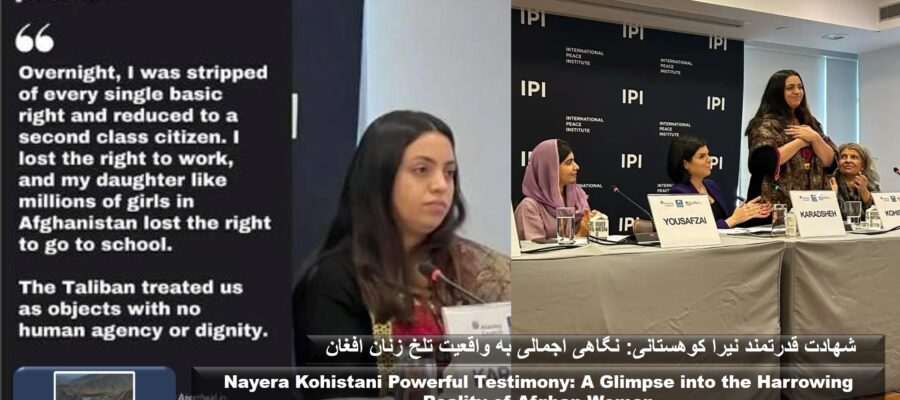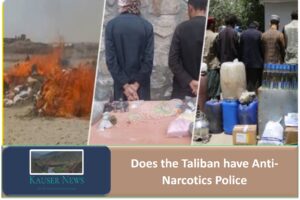In a poignant Facebook post, Nayera Kohistani expressed her gratitude for being given the opportunity to participate in a significant event, shedding light on the critical issues faced by women in Afghanistan. As she extended her appreciation to the guests, speakers, journalists, and program management, she took a heartfelt journey into her past, reflecting on the struggles and triumphs that have shaped her identity.
Kohistani’s sentiments echo the sentiments of countless Afghan women who have faced the harsh realities of a gender apartheid regime. Her words not only convey personal gratitude but also serve as a powerful testimony to the collective experiences of millions of women who have been victims of oppression and hardship.

The situation of women in Afghanistan has been a focal point for various organizations and human rights activists, with the United Nations playing a crucial role in shedding light on the challenges faced by Afghan women. Through extensive reports, international conferences, and collaborative efforts, the voices of these women have reached global audiences, sparking conversations about the urgent need for change.
As Kohistani delves into her personal narrative, she becomes a living documentary, representing the millions of women who have suffered under the oppressive rule of the gender apartheid regime in Afghanistan. Her presence at the event serves as a reminder that behind the statistics and headlines, there are real stories of resilience, pain, and lost identity.
The mention of her past in Afghanistan elicits a deep emotional response, as she acknowledges the guests, speakers, journalists, and program management who shared in her journey. This acknowledgment extends beyond a mere expression of gratitude; it is a recognition of the collective effort required to bring attention to the plight of Afghan women. Each person present becomes a part of the narrative, witnessing the struggles firsthand and contributing to the broader dialogue surrounding women’s rights in Afghanistan.

Kohistani’s gratitude is not just for the event itself but for the understanding and empathy displayed by those who attended. She notes that they not only stood witness to her personal experiences but also became emotionally involved, sharing in her pride and shedding tears alongside her. This shared emotional connection highlights the universal nature of the struggles faced by Afghan women, transcending geographical boundaries and cultural differences.
The documented history of Afghan women under the gender apartheid regime is filled with tragic and heartbreaking stories. Kohistani’s words serve as a stark reminder of the challenges faced by those who fight for their lost identity and rights. The pain she references is not just personal but extends to the broader community of women who have been denied basic human rights, freedom, and dignity.
The term “gender apartheid” encapsulates the systematic oppression faced by Afghan women, restricting their access to education, healthcare, and employment. Under this regime, women were subjected to harsh restrictions, their voices silenced, and their identities erased. Kohistani’s declaration of being a living documentary is a call to action, urging the international community to take notice and advocate for the rights of Afghan women.
The struggle for women’s rights in Afghanistan is ongoing, and Kohistani’s gratitude serves as a testament to the progress that has been made. While there is still much work to be done, events like the one she attended provide a platform for women to share their stories, fostering understanding and empathy among a global audience.
In conclusion, Nayera Kohistani’s Facebook post is more than just an expression of gratitude; it is a powerful statement that brings attention to the dire situation of Afghan women. Her words serve as a reminder that behind every statistic is a real person with a unique story, and the collective efforts of individuals and organizations are essential in bringing about positive change. As the international community continues to advocate for women’s rights in Afghanistan, stories like Kohistani’s will play a crucial role in shaping a more just and equitable future for Afghan women.




